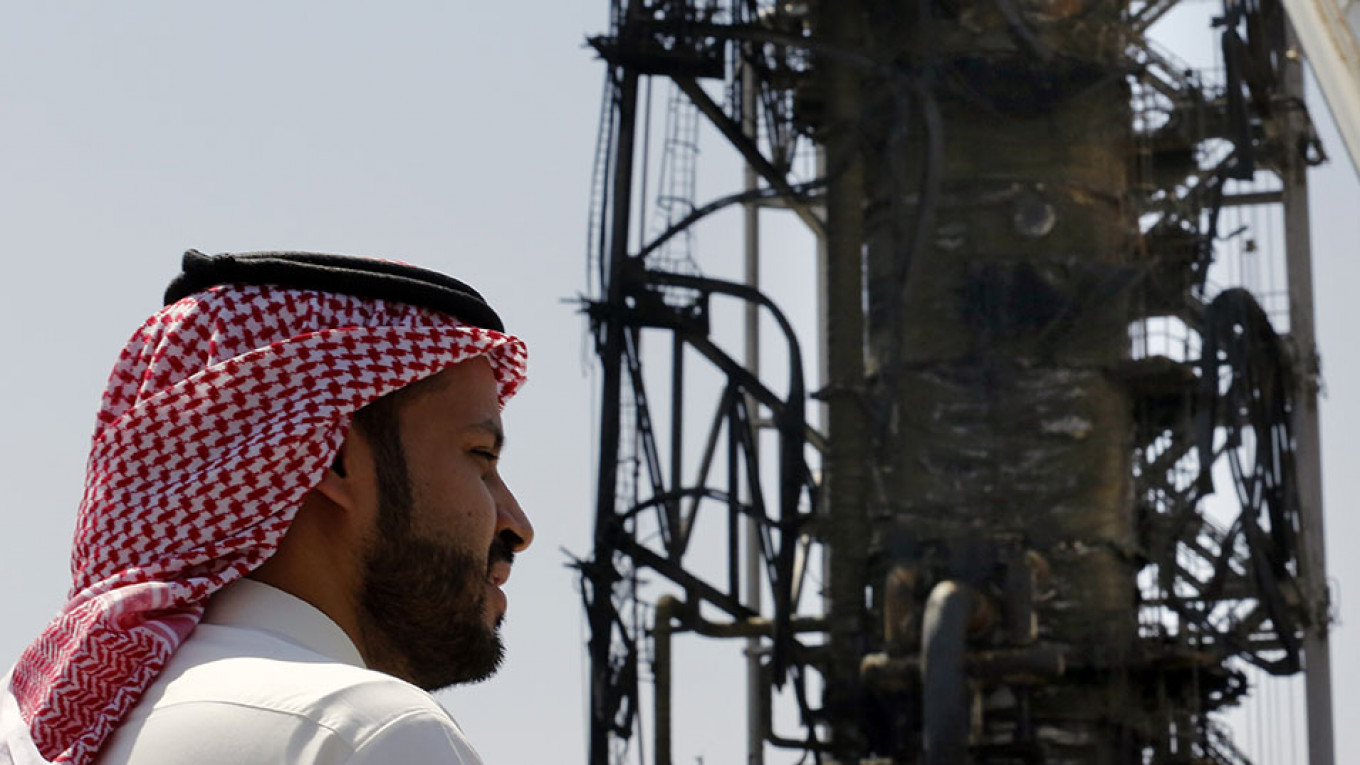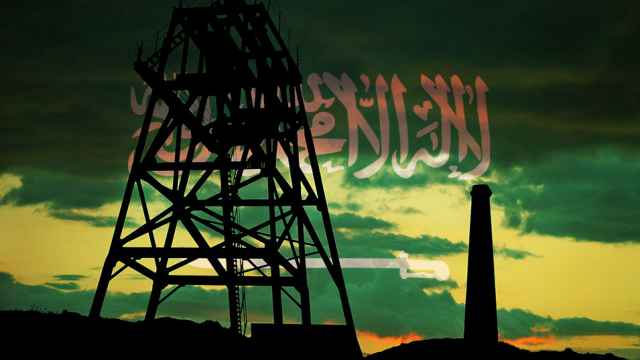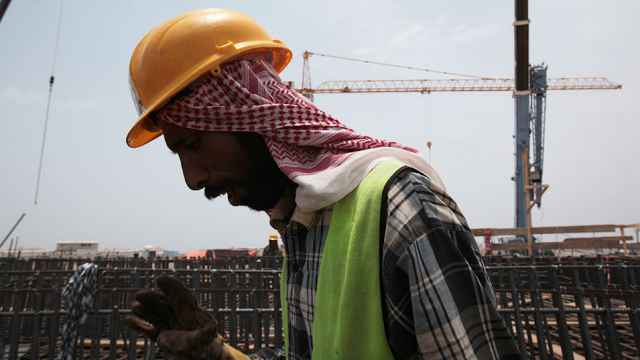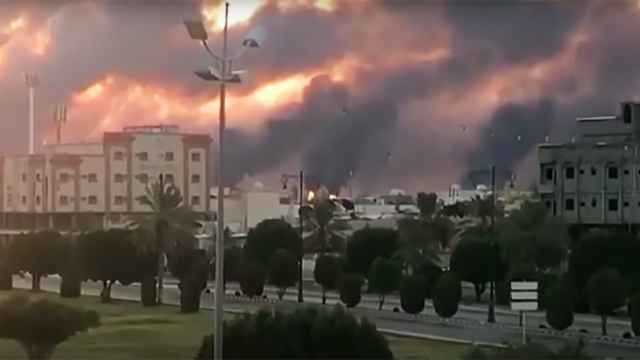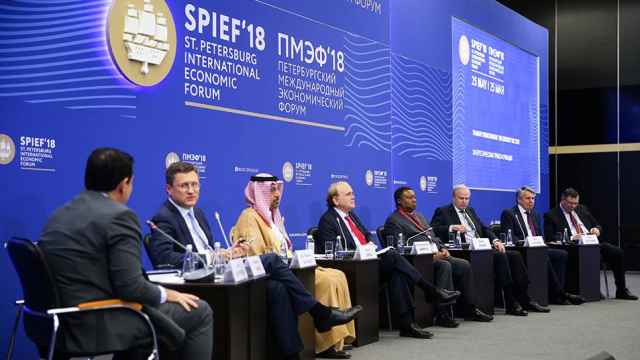President Vladimir Putin signaled Moscow's growing Middle East clout on Monday by visiting Saudi Arabia for the first time in over a decade, buoyed by Russian military gains in Syria, strong ties with Riyadh's regional rivals and energy cooperation.
Moscow accrued power in the Middle East in 2015 by sending troops to Syria, where it and Iran have been key backers of President Bashar al-Assad amid civil war, while the United States pulled back. Saudi Arabia sided with Syrian rebels.
On the eve of Putin's trip, U.S. troops were abruptly retreating from northern Syria as Russian-backed government forces deployed deep inside Kurdish-held territory under a deal to help fend off a Turkish cross-border offensive.
Russia has also strengthened ties with both Sunni Muslim Saudi Arabia and Shi'ite Iran, which are locked in a decades-old contest for influence that veered towards open conflict after a recent spate of attacks on oil assets in the Gulf that Riyadh and Washington blame on Tehran. Iran denies the charges.
Tensions with Iran, which is locked in several proxy wars with Saudi Arabia, have risen to new highs after Washington last year quit a 2015 international nuclear accord with Tehran and re-imposed sanctions.
The Russian president, accompanied by his energy minister and head of Russia's wealth fund, met King Salman at his palace along with de facto ruler Crown Prince Mohammed bin Salman, with whom Putin says he has friendly relations.
Deepening ties have seen non-OPEC Russia, once regarded as a rival in oil markets, join OPEC kingpin Saudi Arabia in forming an alliance known as OPEC+ to support crude prices by restraining output.
At a morning forum convening 300 Saudi and Russian CEOs, Saudi Energy Minister Prince Abdulaziz bin Salman said OPEC+ countries were showing high commitments to the deal, and his Russian counterpart said there were no talks underway to change it.
Ahead of the visit, Putin, who offered to provide Russian defense systems to the kingdom after Sept. 14 attacks on its oil facilities, said he could also play a positive role in easing tensions with Tehran given good ties with both sides.
Any progress on long-mulled Saudi plans to purchase the Russian S-400 surface-to-air missile systems would cause disquiet in Washington, which is sending 3,000 troops and additional air defense systems to Saudi Arabia.
U.S. President Donald Trump has resisted pressure to sanction Riyadh over human rights abuses, including the murder of journalist Jamal Khashoggi, calling that a "foolish" move that would only benefit competitors Russia and China.
Oil and investments
Asked about concerns Riyadh was cozying up to Moscow, Saudi Minister of State for Foreign Affairs Adel al-Jubeir said he saw no contradiction.
"We don’t believe that having close ties with Russia has any negative impact on our relationship with the United States," he told reporters on Sunday. "We believe that we can have strategic and strong ties with the United States while we develop our ties with Russia."
Russian and Saudi flags lined Riyadh streets ahead of Putin's one-day visit, which includes an evening performance by Russia's Tchaikovsky Symphony Orchestra. Putin then travels to the United Arab Emirates on Tuesday.
The two sides signed more than a dozen memoranda of understanding during the visit including in the fields of energy, petrochemicals, transport and artificial intelligence.
RDIF head Kirill Dmitriev said a number of Russian investors were interested in a planned initial public offering of Aramco. The oil major could sell 1-2% through a local listing its chairman said would be announced "very, very soon", ahead of a potential international offering.
Energy Minister Alexander Novak said Russia's Gazprom was interested in cooperating with Saudi firms on natural gas.
Moscow, the world’s largest wheat exporter, made some progress in accessing the Saudi and Middle Eastern markets when the kingdom agreed in August to relax specifications for wheat imports, opening the door to Black Sea imports.
RDIF and Saudi Arabia's SALIC signed an agreement to jointly search for investment projects in Russia's agricultural sector.
A Message from The Moscow Times:
Dear readers,
We are facing unprecedented challenges. Russia's Prosecutor General's Office has designated The Moscow Times as an "undesirable" organization, criminalizing our work and putting our staff at risk of prosecution. This follows our earlier unjust labeling as a "foreign agent."
These actions are direct attempts to silence independent journalism in Russia. The authorities claim our work "discredits the decisions of the Russian leadership." We see things differently: we strive to provide accurate, unbiased reporting on Russia.
We, the journalists of The Moscow Times, refuse to be silenced. But to continue our work, we need your help.
Your support, no matter how small, makes a world of difference. If you can, please support us monthly starting from just $2. It's quick to set up, and every contribution makes a significant impact.
By supporting The Moscow Times, you're defending open, independent journalism in the face of repression. Thank you for standing with us.
Remind me later.



